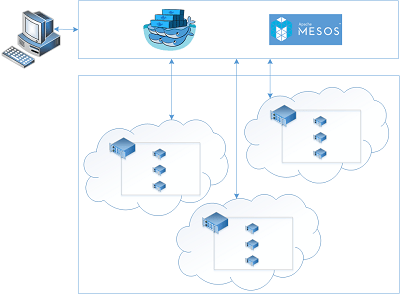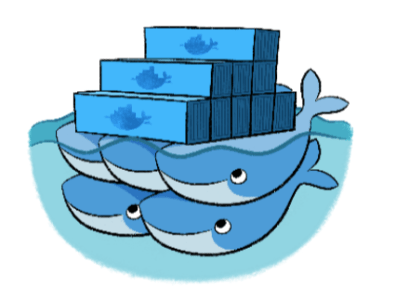

Azure Container Service, Microsoft’s container scheduling and orchestration service for its Azure cloud computing service, is now generally available.
The service, which allows its users to choose either Mesosphere’s Data Center Operating System (DC/OS) or Docker’s Swarm and Compose to deploy and orchestrate their containers, was first announced in September 2015 and hit public preview this February.
As Microsoft’s CTO for Azure (and occasional novelist) Mark Russinovich told me, he believes this ability to use both Docker Swarm/Compose and the open-source components of DC/OS — both of which are based on open-source projects — makes the Azure Container Service stand out from some of its competitors.
 As Russinovich told me, the company doesn’t want to tell its customers which of these two services to use. “It’s our job to make sure our customers can use either one or both on our cloud and have a great experience,” he said.
As Russinovich told me, the company doesn’t want to tell its customers which of these two services to use. “It’s our job to make sure our customers can use either one or both on our cloud and have a great experience,” he said.
Microsoft’s history with Mesosphere goes back quite a bit, of course. At first, the company worked with Mesosphere to allow its users to run its DC/OS on Azure; the two companies are also partnering to bring DC/OS support to Windows and Hyper-V containers, as well. In addition, Microsoft made a strategic investment in the company (and Microsoft reportedly tried to buy Mesosphere at one point last year, something Russinovich didn’t want to comment on, of course).
 Microsoft also believes that using these open-source solutions means its users can easily take their workloads and move them on-premise when they want (or move their existing on-premise solutions to Azure, too, of course).
Microsoft also believes that using these open-source solutions means its users can easily take their workloads and move them on-premise when they want (or move their existing on-premise solutions to Azure, too, of course).
The one service missing from Microsoft’s line-up here, though, is Google’s Kubernetes, which is also an open-source project. Russinovich argued that the company is focusing on the open-source technologies its customers are requesting — and with that, he obviously implied that its customers aren’t currently asking for Kubernetes (though he also left the possibility open that Azure would one day support it).
As Russinovich noted, the company is seeing lots of companies that are now moving their workload to containers. “A few years ago, it was very much dev test, but now whole companies are adopting it in production,” he said.
For now, these users still have to go directly to Mesosphere and Docker to get support for their deployments. Russinovich told me that Microsoft doesn’t currently have any plans to offer support through a similar arrangement it currently has with Red Hat, for example.
Featured Image: chungking/Shutterstock

